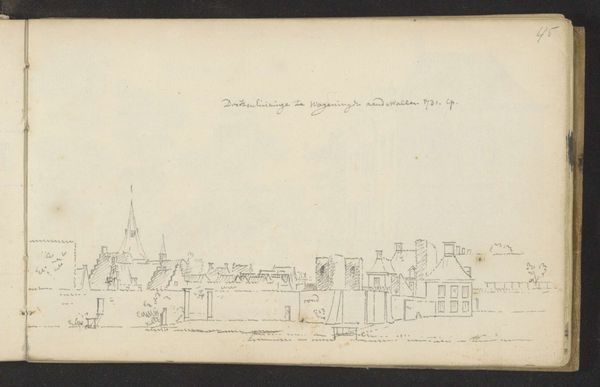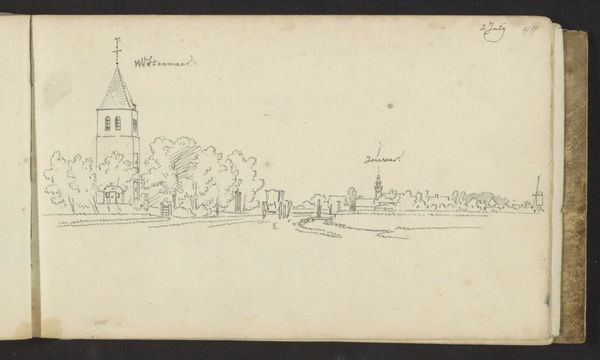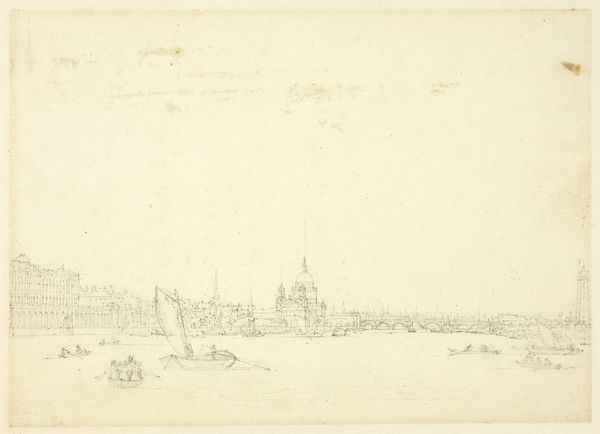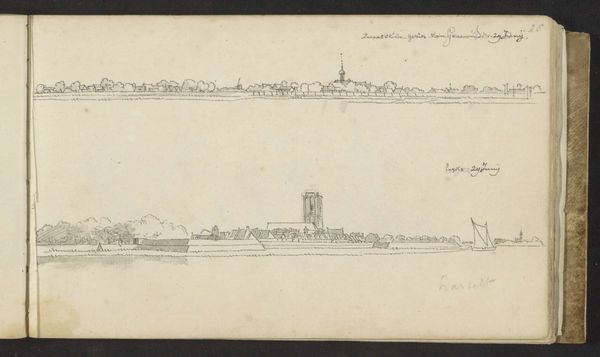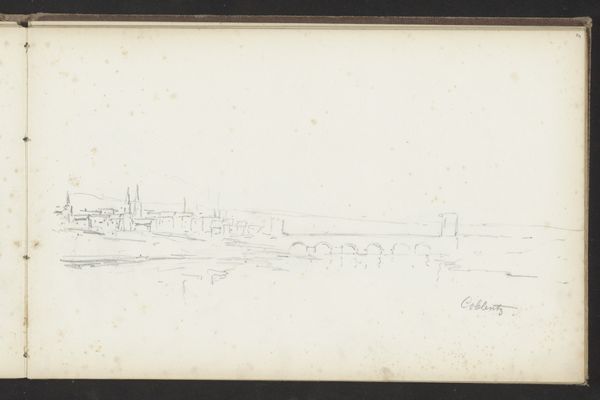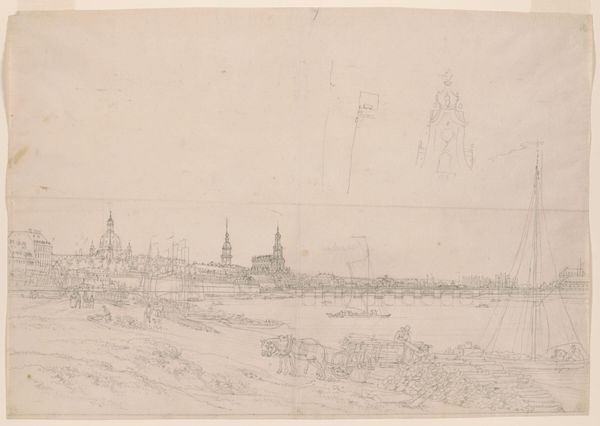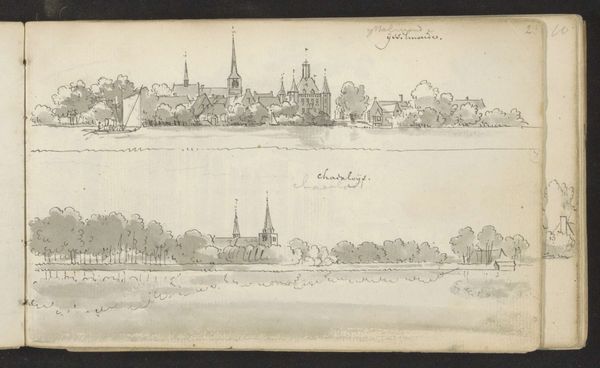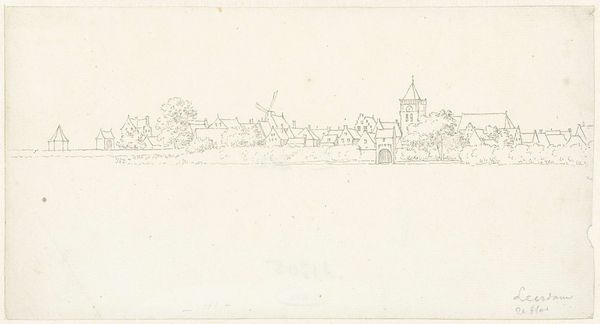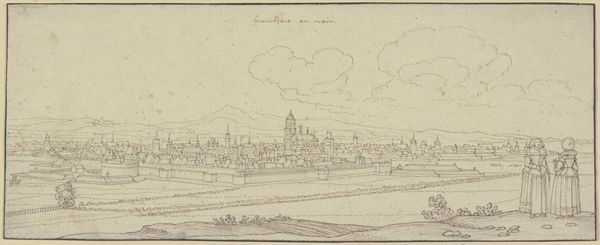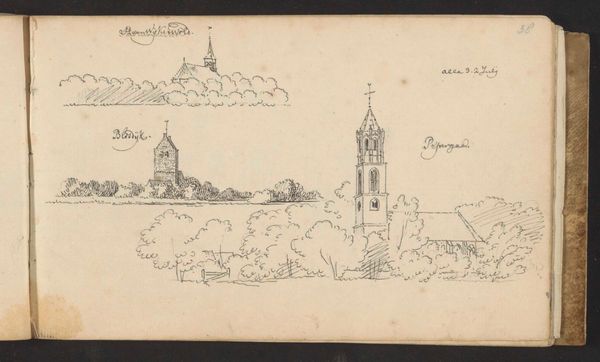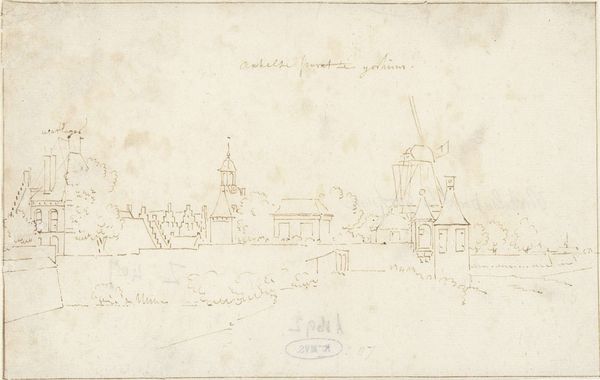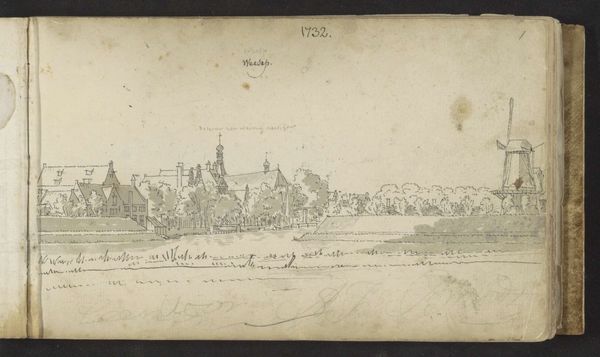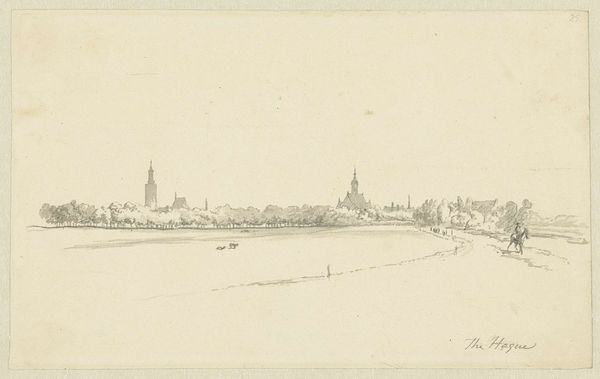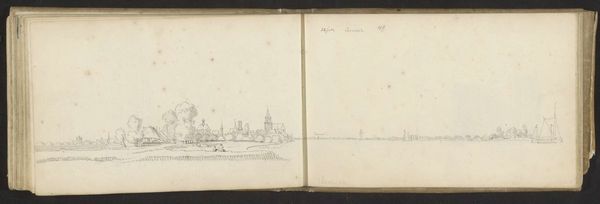
#
quirky sketch
#
pen sketch
#
sketch book
#
personal sketchbook
#
sketchwork
#
pen-ink sketch
#
pen work
#
sketchbook drawing
#
storyboard and sketchbook work
#
sketchbook art
Copyright: Rijks Museum: Open Domain
Editor: This is "Maassluis gezien vanaf Delftse Vaart," a pen and ink drawing by Abraham de Haen the Younger, created around 1731-1732. I'm immediately drawn to its almost ephemeral quality, like a fleeting memory captured on paper. What catches your eye about this sketch? Curator: I think its significance lies in what it reveals about the Dutch Republic at the time, a period of relative peace and prosperity, but also one of growing social stratification. De Haen isn't just sketching a landscape; he's capturing a specific locale and its relationship to broader Dutch society. Do you notice the prominent church spire, and how it dominates the composition? Editor: Yes, it’s quite central and draws the eye upward. Curator: Precisely. In the 18th century, the Church's visual dominance reflected its continued social influence, but also suggests the shifting power dynamics in Dutch society. Maassluis was an important center for shipping and fishing. How might De Haen’s portrayal of the town reflect the social and economic realities of the period? Editor: I see the small boats in the harbor and wonder if that’s a nod to the working-class citizens rather than just depicting a pretty town. Curator: It’s possible. Consider who would have had access to art like this? Likely the merchant class or local elites who controlled civic life. This seemingly simple sketch can be seen as an idealized depiction, reflecting the worldview of a particular social stratum. Editor: I hadn’t considered that angle. The sketch now seems like more of a social commentary than a simple landscape. Curator: Indeed. By understanding the socio-political context, we can unpack the complexities embedded even in seemingly simple artwork. It changes the way one perceives it. Editor: Absolutely. I'll definitely remember to think about the historical lens from now on when looking at art.
Comments
No comments
Be the first to comment and join the conversation on the ultimate creative platform.
